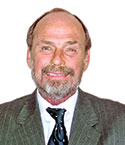Drilling Advances
There's a new sheriff in town, and operators have high hopes that he and his deputies will take more kindly to their Gulf of Mexico drilling programs than the constabulary they replaced.
After widely applauding the confirmation of former Congressman Ryan Zinke (R – Montana) as secretary of the potent U.S. Department of the Interior (DOI), the industry is now hankering to head off, or at least soften, some of the more stifling regulations handed down by the previous administration. High on the 2017 hit list is rectifying the “technical flaws” in the now-in-force offshore well control rules.
“There are still a lot of technical concerns around the well control regulation,” said Lori LeBlanc, executive director of the grassroots Gulf Economic Survival Team (GEST) of Thibodaux, La., created in 2010, in response to former President Obama's Macondo-inspired Gulf of Mexico drilling moratorium. “They did make some changes, but not enough. We're not necessarily asking them to kill the entire regulation, only certain provisions in it that give us pause. We want to get technical experts involved, and figure out the best course of action for resolving some of the technical flaws in this rule and move forward.”
Crippling ramifications. Given an avowed allergic reaction to what it sees as “overreaching and burdensome” regulations, the nascent administration of U.S. President Donald Trump has buoyed hopes that a reshaped offshore regulatory regime could emerge, and help ease the crippling ramifications of low commodity prices. “Louisiana has lost 76,000 jobs in the last two years and in those two years, we've had more than 140 rules and regulations that have impacted the oil and gas industry,” says LeBlanc. “Nobody in our industry wants zero regulations, but we want regulations and policies that make sense, and allow us to continue to be active in the Gulf of Mexico.”
Regulations that directly affect the offshore largely fall under the purview of the DOI's Bureau of Safety and Environmental Enforcement (BSEE) and its sister, Bureau of Ocean Energy Management (BOEM). The former was responsible for enacting and enforcing the sweeping well control rule that went into effect last July.
Tighter margins hit. One of the most onerous stipulations in the BSEE rule, and one high on GEST's current agenda, deals with what the bureau considers safe drilling margins—a stringent specification that essentially disregards most majors' already rigorous internal safety protocols.
“The rule has very prescriptive drilling margins, and anything that deviates from those margins requires the operator get a variance from the agency (BSEE). Getting a variance is a very difficult and inconsistent process, and it is very difficult for an oil company to rescind it. These companies are spending hundreds of millions of dollars on a development, and have to depend on a variance as part of their well design,” LeBlanc said. “Technical experts have said that provision, alone, could make the well less safe. We're hoping that with this administration, we may be able to inject more technical and reasonable input, and come out with a (regulatory) program that makes sense.”
In a GEST-commissioned study, released last year after the well control rule was announced, Wood Mackenzie estimated that the tighter drilling margin, cementing and other requirements would leave 63% of Gulf of Mexico wells drilled since July 2010 out of compliance, as designed. The study suggested that the oppressive regulations could put the U.S. GOM at a competitive disadvantage, further compounding the current economic climate. “Many of these companies do have a choice in where they operate,” LeBlanc said.
Indeed, think of the businessperson considering setting up shop in a community with overly restrictive rules, when a neighboring town offers a less draconian, and perhaps equally rewarding, operating environment. A similar scenario eventually could play out just across the U.S.-Mexico maritime boundary, where Mexico's debut offshore lease offering in December drew the likes of Chevron, Exxon Mobil and Total among winning bidders of blocks that included oil-rich Perdido Fold.
Universe shifted. Meanwhile, just as BSEE was finalizing the well control rule, its sister, BOEM, landed a broadside by slipping into the regulatory mix, a since-stalled proposal to substantively revise its offshore air emission regulations. It did so without offering any evidence that offshore emissions adversely affected onshore air quality, GEST argued.
A particularly baffling element of the proposed changes would have operators accounting for the emissions generated by the vessels, and in some instances, helicopters that service their rigs and platforms. LeBlanc said that monitoring requirement has been likened to forcing a factory to record the exhaust fumes from every vehicle entering its site.
“We made comments and, on numerous occasions, asked them to withdraw the rule,” LeBlanc said. “We were very successful in heading it off for now, and luckily it didn't go anywhere. But, it's still out there. It's another issue on our list that needs to be revamped and re-evaluated by this administration to see if it's even needed. In BOEM's mad rush to get regulations done prior to the end of the previous administration, they pushed this one through the system.”
Overall, LeBlanc said GEST is confident that it now has receptive ears in Washington. She also conceded being caught by surprise with Trump's November election, which upended GEST's initial 2017 action plan. “When we laid out our GEST strategy for 2017, we felt like the election would go a certain way. The document we put together last August and September looks a lot different today. Our whole universe shifted.” ![]()

- Applying ultra-deep LWD resistivity technology successfully in a SAGD operation (May 2019)
- Adoption of wireless intelligent completions advances (May 2019)
- Majors double down as takeaway crunch eases (April 2019)
- What’s new in well logging and formation evaluation (April 2019)
- Qualification of a 20,000-psi subsea BOP: A collaborative approach (February 2019)
- ConocoPhillips’ Greg Leveille sees rapid trajectory of technical advancement continuing (February 2019)


